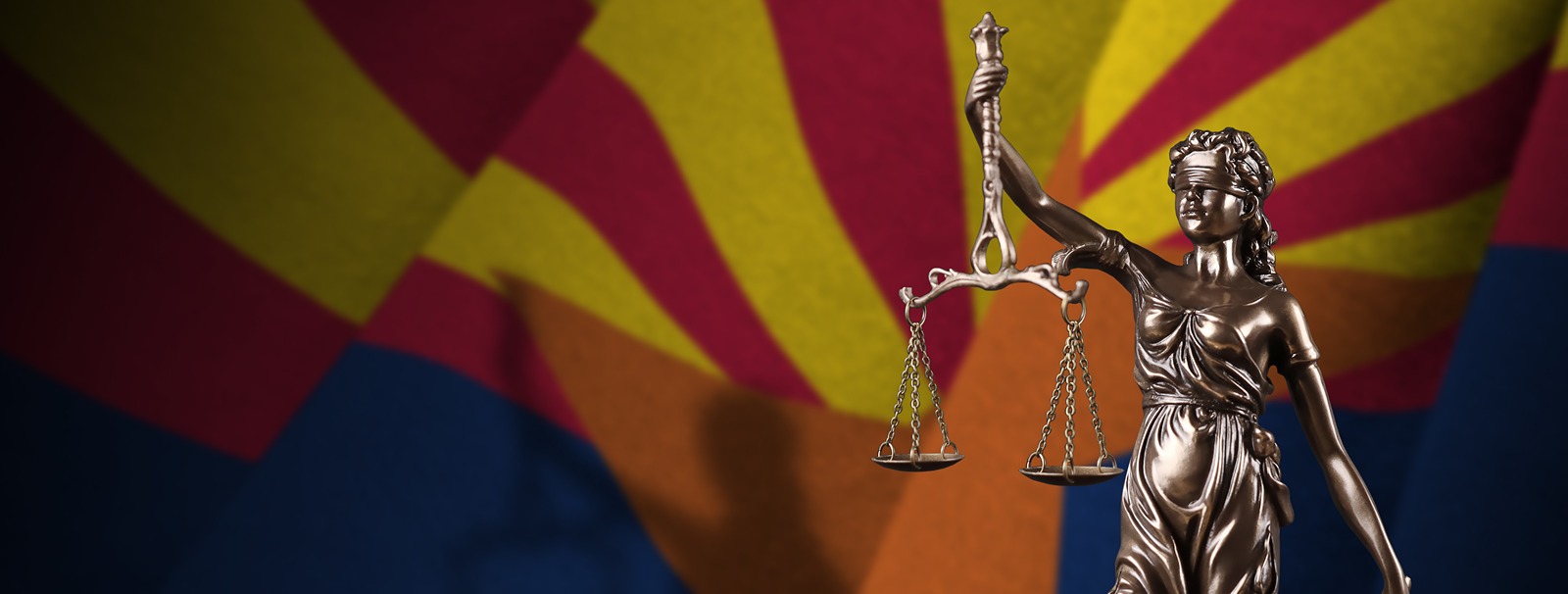Understanding Arizona Plea Bargain: A Guide to Achieving the Best Outcome
We’re Here to Help You – Talk to Our Legal Team Immediately
In Arizona, plea bargains play a significant role in the criminal justice system, allowing defendants to resolve their cases through negotiations without the uncertainty of a trial.
A plea bargain allows a defendant to plead guilty to a lesser charge or receive a reduced sentence in exchange for an agreement with the prosecution.
This process helps to expedite legal proceedings and can sometimes result in a more favorable outcome than going to trial.
For anyone facing criminal charges, understanding the plea bargaining process is critical. This guide breaks down the different types of plea bargains, their advantages and disadvantages, and how they are negotiated in Arizona. With the right legal strategy and representation, a plea bargain can help reduce the impact of a criminal conviction, provide a path forward, and allow for probation in some cases. Read on to learn how an experienced criminal defense attorney can guide you through the process and protect your rights.
This article includes the following:
- What is a Plea Bargain?
- Types of Plea Bargains include charge bargaining, sentence bargaining, and other forms of negotiation.
- Advantages of Plea Bargains
- Negotiating a Plea Bargain
- Arizona-Specific Considerations
- 7 Frequently Asked Questions
- Important Things to Remember
- How Guardian Law Can Help You
Follow us On
Free Case Evaluation
Free & Confidential Consultation
Don’t Wait – Call Us Now to Speak with an Arizona DUI Lawyer
► What is a Plea Bargain?
A plea bargain is an agreement between a defendant and the prosecution in which the defendant agrees to plead guilty to a lesser charge, plead guilty in exchange for a reduced sentence, or agree to other terms that benefit both parties.
The prosecution offers a plea deal to resolve the case quickly and avoid the time and expense of a trial, which is a common type of plea bargain.
Plea bargains are commonly used in Arizona courts and can apply to both misdemeanors and felony charges. The terms of a plea agreement vary based on the severity of the crime, the defendant’s criminal history, and the strength of the evidence presented by the prosecutor. For many defendants, a plea bargain is a strategic decision that can significantly impact their future.

► Types of Plea Bargains
There are several types of plea bargains, each offering different potential benefits depending on the circumstances of the case:
- Charge Bargaining is a common type of plea bargain that involves negotiating the charges to which a defendant pleads guilty. – The defendant pleads guilty to a lesser charge in exchange for a more lenient sentence.
- Sentence Bargaining – The defendant pleads guilty in exchange for a predetermined, reduced sentence.
- Fact Bargaining – Certain facts are agreed upon to prevent more damaging evidence from being introduced.
Each type of plea bargain has advantages and risks, making it essential for defendants to consult with an experienced criminal defense attorney before accepting a plea bargain.
► Advantages of Plea Bargains in Arizona
Plea bargains can offer several benefits, including:
- Reduced Charges – Defendants may face a lesser charge than originally filed, leading to lower penalties.
- Shorter Sentences – A plea bargain often results in a lighter sentence than a trial conviction.
- Less Stress and Uncertainty – Avoiding trial can reduce the emotional and financial burden on defendants and their families, mainly when they accept a plea bargain that the criminal defense lawyer deems favorable.
- Faster Case Resolution – The plea bargaining process is usually much quicker than going to trial.
- Avoiding Maximum Penalties – A plea bargain sometimes allows defendants to avoid mandatory minimum sentences or severe penalties.
► Negotiating a Plea Bargain
Successfully negotiating a plea bargain requires an understanding of the legal process, strategic planning, and the ability to recognize the benefits of plea bargaining. Here are key factors to consider when evaluating the benefits of plea bargaining: the role of the prosecutor, the defendant’s criminal history, and the potential for probation.
- Understanding the Charges and the potential benefits and risks of a plea deal is crucial for defendants. – Knowing the potential penalties and legal consequences is crucial before agreeing to a plea deal.
- Evaluating the Evidence – The strength of the prosecution’s case can determine whether a plea bargain is a good option.
- Seeking Legal Representation – A criminal defense attorney can negotiate a favorable plea agreement on behalf of the defendant.
- Weighing the Consequences – Accepting a plea deal means pleading guilty, which results in a criminal conviction.

► Arizona-Specific Considerations
Arizona’s legal framework imposes specific restrictions on plea bargaining in criminal cases, particularly under the provisions of Arizona Revised Statutes Title 13.
For example, plea bargaining is constrained in cases involving drug offenses, as outlined in ARS 13-3405 to ARS 13-3419, which target repeat offenders and more severe drug-related crimes by stipulating mandatory minimum sentences.
Similarly, sexual offenses covered under statutes like ARS 13-1406 come with strict sentencing guidelines that limit plea negotiation flexibility to uphold penalties and protect public safety.
DUI offenses, detailed in ARS 28-1381 to ARS 28-1383, also see reduced plea bargaining options, especially for repeat offenders or instances involving serious injury or death.Additionally, the structuring of plea agreements can vary significantly due to local court practices across different Arizona cities such as Phoenix and Tucson.
► 7 Frequently Asked Questions
⑴ What role does a judge play in a plea bargain?
A judge must approve any plea bargain and ensure that the defendant is entering the plea voluntarily and with a full understanding of the consequences.
⑵ Can a plea bargain be withdrawn?
In some cases, a plea bargain may be withdrawn before sentencing if new evidence arises or if the defendant successfully argues that they entered the agreement under duress.
⑶ Are plea bargains available for all types of criminal cases?
Some violent crimes and serious felonies may have restrictions on plea deals.
⑷ How does a plea bargain affect my criminal record?
A plea bargain results in a conviction, but it may be for a lesser charge that carries fewer long-term consequences.
⑸ What happens if I reject a plea bargain?
If a defendant rejects a plea bargain, the case will proceed to trial, where the outcome is uncertain and could result in harsher penalties.
⑹ Do I need an attorney to negotiate a plea bargain?
While it is not mandatory, having an attorney is highly recommended to ensure that a defendant secures the best possible outcome.
⑺ How long does the plea bargaining process take?
The timeline varies based on case complexity and court schedules, ranging from weeks to months.
► Important Things to Remember
- A plea bargain is an agreement that allows a defendant to resolve their case without going to trial.
- There are different types of plea bargaining in Arizona. types of plea bargains, including charge bargaining, sentence bargaining, and fact bargaining, all of which are important in the context of plea bargaining in Arizona.
- A plea deal can offer reduced charges, shorter sentences, and faster case resolution.
- It is advisable to consult with an experienced criminal defense attorney when negotiating a plea agreement.
- Arizona law has specific rules regarding plea bargains, and some offenses may not be eligible for a deal.
- If a plea bargain is rejected, the case will proceed to trial, where penalties may be more severe.
► How Guardian Law Can Help You
If you’re facing criminal charges in Arizona, Guardian Law can provide the legal representation you need to achieve the best plea agreement. Our experienced criminal defense attorneys deeply understand Arizona law and the plea bargaining process.
We work diligently to negotiate favorable plea deals that minimize the impact on our clients’ futures.
Don’t face the legal system alone. Contact Guardian Law today to schedule a consultation and discuss your case. Call (480) 316-4618 or fill out our online contact form to get started on your defense strategy.





